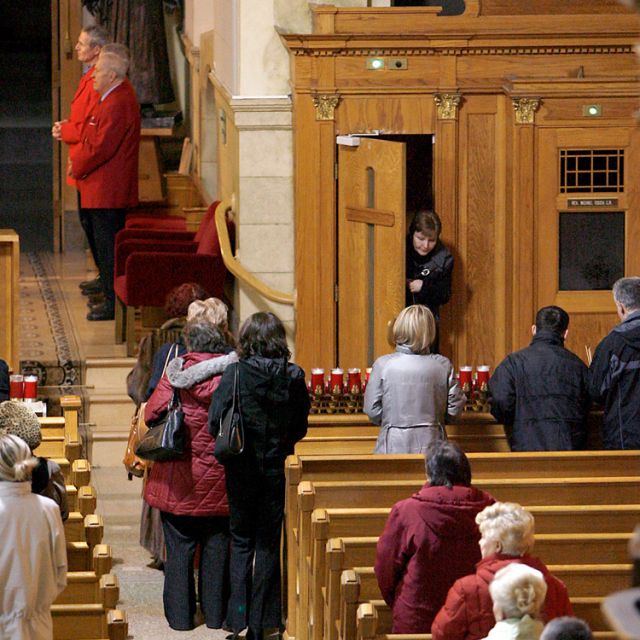The Italian bishop's comments, published Jan. 28 in the Vatican newspaper L'Osservatore Romano, were made in his address to a symposium for confessors held in Loreto, Italy.
"Isn't it true perhaps that at times confession takes on the semblance of a prosecuting tribunal rather than a celebration of forgiveness," and that the conversation takes on "inquisitorial or, in any case, indelicate tones," he asked.
A confessor is first and foremost a father who welcomes, listens and engages in dialogue, he said.
People going to confession "are seeking comfort, advice and forgiveness," he said. Often they are dealing with problems in their personal life or in their relationships; concerns about contraception, separation or divorce; or difficulties between parent and child, he said.
"As confessors we are called to show mercy and hope, to be fathers more than judges, to take on the penitent's pain and listen with much patience," he said.
"All of this has nothing to do with being lax or permissive," he said, "rather it focuses on the inner liberation of the penitent," their feelings of remorse and repentance, and facilitating their reception of judgment, grace and mercy from God.
Bishop Girotti said a confessor "would commit a serious injustice" if he dared let his judgment and advice to the penitent be influenced more by his own personal opinions and viewpoints than by church teaching and doctrine.
Priests must carefully control their reaction, including facial expressions and gestures, when hearing confession, he said.
The confessor should imitate Christ's gentleness and never display a sense of shock no matter how grave the sin, he said. The confessor must never pry for personal details, never show impatience or be in a hurry, and should instill a healthy fear of God, but not terror and should condemn the sin, not the sinner, he added.
Penitents open their heart and soul to the confessor because they see him as being "God's minister, and if instead they find in him severity, not mercy, or doubts and obscurity, and not the light of truth, they will have been truly deceived."


